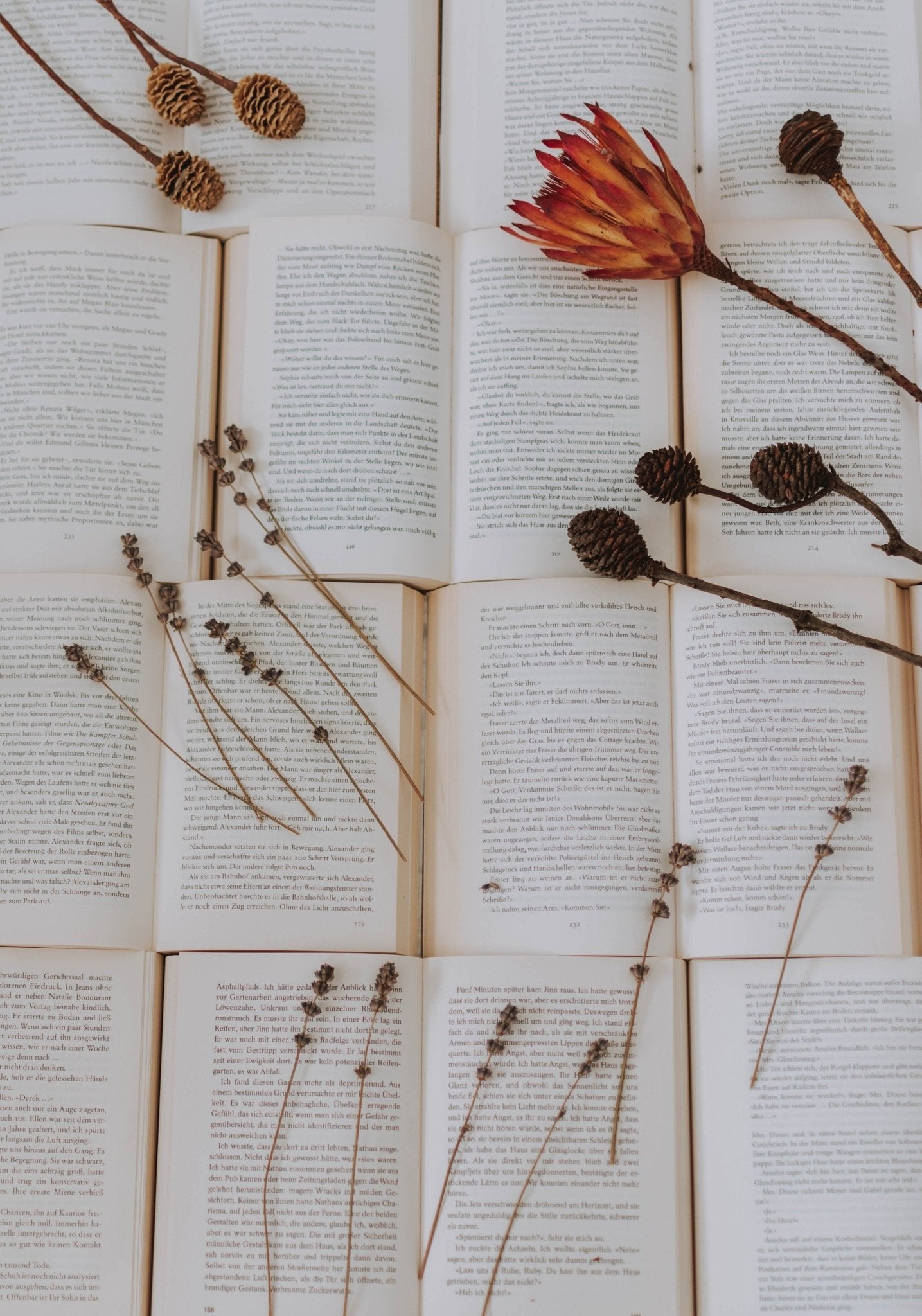Around one million books are published each year and as Stephen King said, "Books are a uniquely portable magic." We are living in an era where voices from diverse cultures are being heard and celebrated. You have seen halal nail polish or certified halal nail polish brands and other halal products and it's time for Muslim female authors to enter the literary world and make a mark there. This list of books is not only an invitation to shatter stereotypes and challenge perspectives but also a round trip through a multi-faceted realm of experiences, all penned by incredibly talented Muslim women.
These fantastic writers create engaging stories that show us the lives of their characters as they indulge in different scenarios - moving to new countries, religion, being a man or a woman, government issues, and love. Every book on this list is unique and makes you think differently. They explore diverse aspects of Muslim life, which are often not found in popular media.
From Malala Yousafzai's powerful testament to the importance of education for girls in "I Am Malala" to Leila Aboulela's nuanced exploration of identity and faith in "The Kindness of Enemies", prepare to discover a world of literature rich in its diversity, strength and resilience. So sit back, make yourself comfortable, and let's dive into the world of Muslim women authors.
1. "Salt Houses" by Hala Alyan
Palestinian-American writer Hala Alyan wrote this book, "Salt Houses". It is a touching exploration of displacement and identity. It is based on the story of the Yacoub family across generations and continents, showing their lives during wars. Alyan is a brilliant storyteller, and it shines through her characters. A beautiful line from the book—"Where do you go when the bombs are your own family's doing?"—underscores this narrative's heart.

Source: Good Reads
This book uncovers how displacement is not only about losing physical homes but also about the subsequent emotional and identity crises. Alyan's novel tells the untold realities of the Palestinian diaspora, which teaches the readers about the fog of displacement, showcasing the strength of the human spirit amidst life's trials. It reminds us that home is not merely a place—it's more of memories, people, and a sense of belonging.
2. "Bright Lines" by Tanwi Nandini Islam
A book based on the lives of a Bangladeshi family navigating the problems of immigrant life in Brooklyn, New York. It is "Bright Lines" written by Tanwi Nandini Islam and is a different and unique narration. The central characters - Anwar, Hashi, and their adopted daughter Ella - are compelling, full of complexities and compellingly authentic. Each character is on a journey of self-discovery, wrestling with issues of identity, sexuality, and the potent sting of loss.

Source: Good Reads
"Home is not a place. It’s not a birthright. It can be a long journey to find it." Islam's detailed writing clearly shows the differences between cultures and how a family tries to keep their traditions alive while trying to fit into a new place. Her writing is actual and lets us see the detailed parts of Bangladeshi culture and the specific problems that immigrants face. The story of Ella's sexual identity, against the background of old-fashioned cultural rules, highlights the conflict between these two different worlds.
"Bright Lines" is not just a story of an immigrant family but a story of resilience, confronting the past, and seeking one's identity. It is a book about the struggle and beauty of being caught between cultures.
3. "The Perfect Nanny" by Leila Slimani
Leila Slimani's "The Perfect Nanny" is a chilling intermix of trust, power, and class dynamics. When Myriam, a French-Moroccan lawyer, decides to return to work, she and her husband seek a perfect nanny for their two young children. Enters Louise: a quiet, devoted, and overly zealous woman who initially seems like a godsend to the family. However, as Louise slides more profound into the family's life, her initial diligence gives way to a disturbing and tragic obsession.

Source: Good Reads
The novel's opening line: "The baby is dead. It took only a few seconds," both shocks and grips the reader. It's a reminder that even the most seemingly perfect situations can put forward deeply unsettling and unwanted realities. This book is Slimani's piercing exploration of domestic horror and also suspense.
4. "Three Daughters of Eve" by Elif Shafak
Elif Shafak is a very prominent Muslim writer. "Three Daughters of Eve" is a book of identity, faith, and the tension between the spiritual and the secular. The story talks about Peri, a wealthy Turkish woman whose present-day life in Istanbul is abruptly shaken by a confrontation that stirs up memories of her past.

Source: Good Reads
Oscillating between her university years in Oxford and the current day, Shafak's narrative dives into the complex lives of three friends - dubbed "the Sinner," "The Believer," and "the Confused." Each represents Peri's inner conflict regarding her Muslim upbringing and Western education. As the narrative unfolds, the reader is drawn into Peri's struggle with religious, social, and personal dilemmas. With an undercurrent of tension, the book explores the grey area between faith and doubt, capturing the contradictions inherent in modern life.
5. "The Kindness of Enemies" by Leila Aboulela
Leila Aboulela combines stories from the past and present. It explores identity, faith, and belonging. The main character, Natasha, is a historian in Scotland. She is interested in Imam Shamil, a 19th-century Muslim leader. Shamil fought against the Russian invasion of the Caucasus. Natasha's student Oz, Shamil's descendant, is caught in a political scandal.

Source: SFGate
This throws Natasha into a lot of drama. Just like Natasha, the story also tells about Shamil's struggle in 19th-century Chechnya. Aboulela's book discusses faith's complexity, history's lasting effects, and multicultural understanding. “As if reading his mind,.... 'To get what you love, you must first be patient with what you hate.” Isn't this line from the book so true?
6. "The Moor's Account" by Laila Lalami
This book is a compelling reconstruction of a silenced voice from history. Based on the ill-fated Spanish expedition to Florida in the 16th century, it retells the journey through the perspective of Estebanico, an enslaved Moroccan who survived when many did not.

Source: Good Reads
This book contains this masterpiece line “When I fell into slavery, I was forced to give up not just my freedom, but also the name that my mother and father had chosen for me. A name is precious; it carries inside it a language, a history, a set of traditions, and a particular way of looking at the world. “
This book is different from the usual Europe-focused stories from this time. Lalami skillfully explores cultural clashes, changes, and survival in harsh conditions. It also deals with themes of power, storytelling, and identity. The book subtly tells readers that history often sides with the powerful and forgets other viewpoints. Lalami's novel is a tribute to those overlooked in history, making sure that Estebanico's story is remembered.
7. "The Last Illusion" by Porochista Khakpour
"The Last Illusion" by Porochista Khakpour combines Iranian myth with modern America. It tells the story of Zal, a boy raised like a bird. His crazy mother kept him in a cage in Iran. A New York scientist eventually adopts him. The story shows Zal struggling to understand who he is. The book explores loneliness, love, and change. It contrasts Zal's weird life with people's fears before the millennium and 9/11.

Source: Porochista Khakpour
Readers see how someone different struggles to fit in, asking deep questions about being human and where we belong. The most famous quote from this book is, “--you could simply imagine doing the unthinkable, and then, the next thing you knew, there you were doing it. Nothing was out of the question. Anything could happen. You had to do it your way.”
8. "The Runaways" by Fatima Bhutto
“That's the thing with betrayal- it's always the people you love.” This famous line shows how good the book "Runaways" by Fatima Bhutto is. A gripping story about why young people may become radicals: it has been quite famous in Pakistan, England, and Iraq.

Source: Penguin Books
The story focuses on three young characters - Anita Rose, from Karachi's poor areas; Monty, from Karachi's rich side; and Sunny, born in England but feels out of place. Their paths cross in Iraq, each there for personal, complicated reasons. Bhutto explores what drives them towards extremism, including society's role and world politics. The book gives a detailed view of youth radicalisation and invites readers to question familiar terrorism narratives.
9. "I Am Malala" by Malala Yousafzai
“One child, one teacher, one book, one pen can change the world.” Who has not heard this famous line from the "I Am Malala" book by Malala Yousafzai? Born and raised in the beautiful Swat Valley of Pakistan, Malala's world changed when the Taliban took control of her region, banning girls from attending school. Rather than being cowed by their oppressive rules, Malala chose to speak out, advocating for the right to education.

Source: Amazon
She stood up for herself, and so became a target. She was shot in the head on her school bus. Surprisingly, she lived and kept fighting worldwide. Her life story is a powerful tale. It shows human resilience, the value of learning, and change-making power. It's an urgent plea for everyone. They should join the global fight for girls' education.
10. "The Geometry of God" by Uzma Aslam Khan
"The Geometry of God" by Uzma Aslam Khan is a beautiful testament between faith, science, and love. Set against the military dictatorship of Zia-ul-Haq in Pakistan, the novel centres on two sisters, Amal and Mehwish, and their grandfather, Zahoor, a palaeontologist. When Zahoor discovers a fossil in the Salt Range of Punjab, it collides between religion and science. Mehwish, who is blind, uses braille to transcribe her grandfather's scientific notes, while Amal, a mathematics student, finds Islam's mystical Sufi tradition.

Source: Amazon
This line from the book, “My faith is what they bury when they force me to expose it.” shows novel is a lyrical narrative that dives into the complexities of faith, the enduring pursuit of knowledge told through a unique Pakistani lens. It's a beautiful exploration of how personal beliefs and passions can shape our understanding of the world.
11. "The Good Muslim" by Tahmima Anam
"The Good Muslim" by Tahmima Anam is set after the Bangladesh war. It tells the story of siblings Maya and Sohail. They struggle with their war-torn country's changes. Sohail becomes religious, while Maya rejects tradition to work at a women's clinic. Their lives mirror their nation's struggles between modernity and tradition.

Source: WikiPedia
The book mixes personal struggles with social changes in Bangladesh. It makes readers think about faith, family, and identity during societal changes.
12. "Modesty: A Fashion Paradox" by Hafsa Lodi
Hafsa Lodi's book discusses the growing trend of modest fashion. It started from cultural and religious customs and is now a big part of the global fashion scene. Lodi is an experienced fashion journalist. She discusses the details, effects, and misunderstandings about modest dressing in various cultures and religions.

Source: Good Reads
She shares stories of the people who have influenced the modest fashion trend. These are Muslim women who go against stereotypes while choosing to dress modestly. The book explores how modesty, often viewed as limited by the West, has become a way for people to express their identity through fashion. It asks us to rethink our ideas about fashion, acceptance, and the contradictory nature of modesty in today's society.
Wrap Up
As we conclude this literary journey, we can appreciate the profound influence of these Muslim female authors. Their varied yet interconnected narratives have not only reshaped stereotypes but also given us a refreshing look into what it means to navigate the world as a Muslim woman today.
Using their potent pens, these authors have touched upon multifaceted aspects of Muslim life that often remain obscured in the mainstream narrative. Yet, this is just the tip of the iceberg. Many more Muslim women authors are penning incredible stories, creating a powerful wave of representation in the literary world.
This growing literary phenomenon signifies a cultural shift and a promising future for diverse narratives in literature. So, let's continue to turn the pages, immerse ourselves in their captivating worlds, and celebrate the magic of these extraordinary Muslim female authors. Their stories remind us that literature knows no borders, and we can all be a part of their journey through their words.
Frequently Asked Questions
1. Who is the most famous Muslim woman author?
Several Muslim women authors have gained worldwide recognition for their work. Some of them include Malala Yousafzai, Leila Aboulela, and Elif Shafak, each known for their impactful storytelling and exploration of complex themes.
2. What are some recommended books by Muslim women authors?
Muslim women write many exceptional books. Some recommendations include "I Am Malala" by Malala Yousafzai, "The Kindness of Enemies" by Leila Aboulela, and "Salt Houses" by Hala Alyan. Each of these books offers unique perspectives and experiences.
3. Are there books by Muslim women that discuss Muslim fashion trends?
Yes, "Modesty: A Fashion Paradox" by Hafsa Lodi is a notable example. This book provides an in-depth look at the global trend of modest fashion within Islamic culture.
4. How do books by Muslim women authors contribute to the understanding of Muslim culture?
Books by Muslim women authors offer authentic narratives that can help readers gain a deeper understanding of Muslim culture, diverse experiences, and perspectives. They explore identity, faith, family life, immigration, and societal norms.




Leave a comment
This site is protected by hCaptcha and the hCaptcha Privacy Policy and Terms of Service apply.